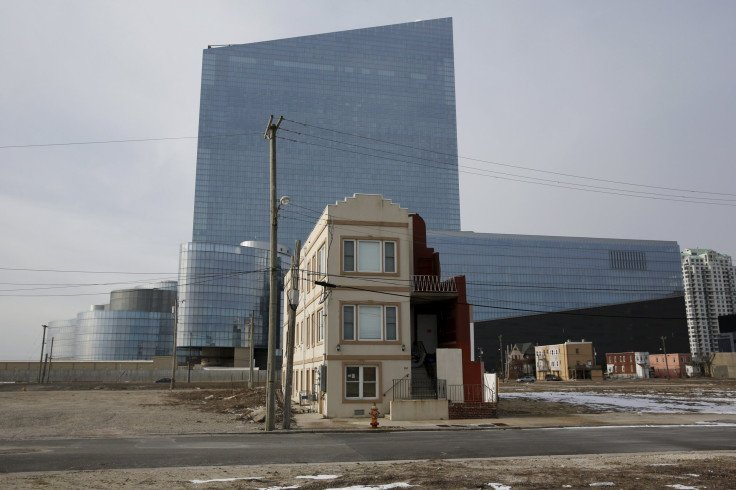Atlantic City Bankruptcy: Chris Christie Announces Debt Rescue Plan For Coastal Casino Resort Town

Republican presidential candidate and New Jersey Gov. Chris Christie took some time away from the campaign trail Tuesday to announce a new plan to rescue the beleaguered gambling town of Atlantic City, which was expected to face bankruptcy by April should no action be taken. Christie’s plan, made with state and municipal lawmakers at his side, would give the state even more power than it already has to restructure city debt and terminate municipal contracts with labor unions.
Atlantic City had amassed as much as $240 million in debt recently as gambling competition in neighboring states has proliferated. Four of the 12 casinos in the city have been shuttered since 2014, a sharp decline from its once prominent stature as a shining vacation destination on the Jersey shore. Revenue in those casinos has reduced by roughly 50 percent in the past decade to $2.56 billion in 2015 compared to $5.2 billion in 2006, according to the New York Times.
Christie’s joint plan comes amid increased scrutiny within the state about his performance as governor while a presidential candidate. The presidential hopeful held 40 town-hall campaign events in New Hampshire last year and spent 261 partial or full days traveling outside of the state he governs – 72 percent of the year. That’s a record that has been noticed by his constituents back home and has drawn at least three harsh editorials from local papers in the Garden State.
The governor’s announced plan does, however, highlight a critical element of the political persona he has been touting on the campaign trail. As the chief executive of a state with a large Democratic population, Christie repeatedly notes his ability to work across the aisle with Democrats as governor and indicates he would be able to do that should he become president. He must now undergo sensitive negotiations with local leaders to ensure the plan is palpable.
© Copyright IBTimes 2025. All rights reserved.






















